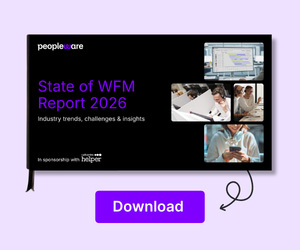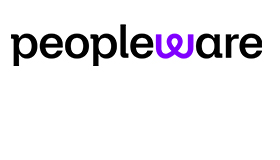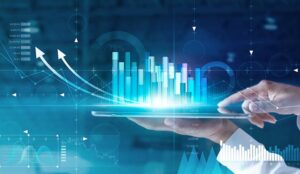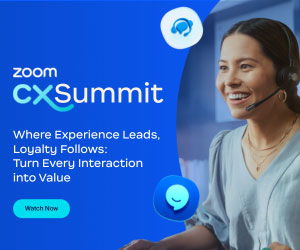Can AI really predict the future?
You’ve probably heard countless forecasting solutions claiming AI capabilities, but let’s face it, often it feels more like marketing hype than actual science.
Is AI-driven forecasting just a buzzword, or is there something more substantial behind it?
Isabel Lim at injixo explains AI-driven forecasting and gives a look inside injixo Forecast
The Evolution of Forecasting: From Manual to AI-Driven Methods
Manual Forecasting
Forecasting in workforce management has evolved significantly over the years. Traditionally, manual forecasting was a laborious task with spreadsheets and basic calculations.
This approach is not only time-consuming but also prone to human error, especially when juggling large datasets and real-time information.
Automated Forecasting
The next leap in forecasting came with automation. Workforce management systems increased efficiency by automatically gathering contact statistics from the routing platform and handling repetitive tasks, allowing for more consistent data capture and processing.
However, these systems often lacked the sophistication to handle complex, unpredictable scenarios and were limited to linear and static models.
AI-Driven Forecasting
The real game-changer has been the introduction of AI-driven forecasting. Unlike manual or basic automated systems, AI forecasting goes beyond mere number crunching.
It integrates advanced algorithms to analyze historical data, recognize patterns, and predict future needs. AI-driven tools, like injixo Forecast, don’t replace you as a workforce manager, planner, or forecaster, they empower you.
This support provides you with clarity and the ability to control the uncertain nature of workforce planning by offering accurate, timely forecasts that adapt to your changing data and business conditions.
This progression from manual to AI-driven forecasting represents a significant shift in how workforce management can achieve more with less, leveraging the power of people and the power of technology for better decision-making.
A Step-by-Step Look Into Forecasting With AI
We are often asked to explain how our AI-based forecasting works. Let’s take a look at it step-by-step, comparing Forecast with what went before.
At its heart, we emphasize ‘Continuous self-learning and updates’ – a central element that continuously feeds new data and insights into every stage of the forecasting cycle.
Step 1: Gathering Data
Traditional Methods
Typically, data collection involves manually compiling and verifying information from various sources, often requiring input from multiple systems.
This can lead to significant delays and inconsistencies in data. It can also create a situation where trends are not spotted in time to take corrective action.
AI Difference:
Forecast streamlines this by automating the data collection process. As soon as you integrate your data sources, it starts to continuously collect historical and real-time data.
This ensures comprehensive and error-free data gathering for calls, emails, chats and other channels your operation supports.
AI starts consuming data as soon as it is available, so integration is an important component of Forecast. Forecast ensures no crucial data point is overlooked, providing a solid and accurate foundation for all subsequent planning tasks.
Step 2: Cleaning Data
Traditional Methods
Manually sorting and cleaning data involves reviewing spreadsheets or databases line by line to identify and correct any wrong values or remove duplicates.
This requires a keen eye for detail and a deep understanding of what constitutes relevant data for accurate forecasting.
Charts are a useful tool for this purpose and it is possible to use statistical methods to identify anomalies.
However, due to the sheer volume and complexity of the data, this is not only time-intensive but also highly susceptible to human error, which leads to significant inaccuracies in the forecasts.
AI Difference:
Forecast transforms this by utilizing the power of AI algorithms, quickly identifying and eliminating irrelevant or missing information from your dataset.
The AI-driven process is not only faster, it is far more accurate than manual methods, significantly reducing the risk of errors. This ensures the relevance and quality of your data. That is essential for producing accurate and insightful forecasts.
Step 3: Optimizing the Forecasting Model
Traditional Methods:
The next step is to select the most suitable forecast methodology. Multiple forecasting methods exist. A proven, well-understood method is linear regression.
With some ingenuity, this method can be implemented in Excel. It is also commonly built into workforce management software applications.
Some applications support more sophisticated techniques, but a key challenge remains: choosing and configuring forecasting models is a complex process.
Most of the time, it involves adjusting various settings based on past experiences. This approach lacks precision and often relies on your intuition, which may not always capture the full complexity or unpredictability of your actual business operations.
AI Difference:
Here, Forecast utilizes the power of AI to adjust the model’s hyperparameters, such as the weight given to recent data versus older data, or the sensitivity to particular trends, based on your unique dataset.
This automated tuning ensures the model is precisely calibrated to reflect your business’s specific seasonal trends and operational patterns.
By relying on data-driven insights rather than guesswork, Forecast’s AI-driven approach offers a level of accuracy and adaptability that traditional methods can’t match.
What Are Hyperparameters?
Hyperparameters in AI models are key settings that determine how the model analyzes and interprets data. They include factors like the complexity of the model or the rate of learning from the data.
Adjusting these key settings is essential to tailor the AI model for specific forecasting tasks, as it makes the difference between a generic prediction and one finely attuned to your business’s specific seasonal patterns and operational dynamics.
Step 4: Refining the Forecast
Traditional Methods:
Refining a forecast often involves manually comparing recent projections with historical data. Due to the vast amount of data and time constraints, this comparison is typically limited, focusing only on the most apparent discrepancies. As a result, subtle but important trends or anomalies may be overlooked.
AI Difference:
Forecast enhances this step with its AI’s advanced analysis capabilities. The AI model independently performs a thorough cross-check of the initial forecast against your actual data.
It identifies and corrects anomalies, such as unexpected call volumes during non-business hours or weekends, ensuring the refined forecast accurately represents the realities of your business operations.
Step 5: Viewing Your Forecast
Traditional Methods:
Forecasts are often presented in charts. While powerful, charts can be hard to interpret, especially when dealing with large datasets.
Navigating through multiple tabs is time-consuming and does not enable quick decision-making. Moreover, if you are viewing your forecast in a spreadsheet, you will not see real-time changes or predictive insights.
AI Difference:
In contrast, Forecast displays forecasts in a clear, user-friendly interface that is updated as soon as new data becomes available, making it easy to identify trends and patterns at a glance.
It also displays the staffing requirements you need as input to the scheduling process. Forecast includes features for manual adjustment, allowing you to combine AI predictions with your own business intelligence, customizing the forecast based on events such as marketing campaigns that the historical data could not have predicted.
This means forecasts can be quickly adjusted to include all relevant inputs, providing a dynamic and interactive forecasting experience far beyond the capabilities of traditional methods.
Continuous Self-Learning and Updates
Traditional Methods:
This often necessitates manually updating and recalibrating the calculations to keep up with changing trends. This laborious and time-consuming approach significantly increases the risk of producing incorrect forecasts.
Adapting to real-time developments is difficult, as these methods typically don’t support automatic integration and analysis of new data.
AI Difference:
A significant advantage of Forecast is its self-learning capability. Its AI models automatically evolve with new data, constantly reanalyzing patterns and adjusting their configuration in order to continuously improve and refine its accuracy.
This ensures your forecasts are always up-to-date with the latest trends and data. This dynamic approach means that your forecasting tool is always learning, improving, and staying ahead of the curve, significantly reducing manual effort and ensuring more timely, relevant insights for informed decision-making.
In short, AI-driven forecasting with Forecast delivers a transformational improvement compared with traditional methods. It brings a new level of accuracy and timeliness, while drastically reducing user effort.
As a customer, it can be challenging to discern which AI claims are substantial and truly beneficial for your operations. A key indicator of quality is the presence of dedicated in-house expertise.
Look for providers that invest in teams of data scientists and machine learning engineers dedicated to continually enhancing the product.
“injixo’s method combines state-of-the-art AI forecasting technology with in-house expertise. Our AI-driven approach constantly evolves, improving accuracy with each new data input, turning complex data into reliable and actionable forecasts for our customers.” Dr. Susanne Hoffmeister, Lead Data Scientist, injixo
Wrapping up, it’s true that it’s difficult to navigate between marketing claims and actual science. However, a reliable WFM provider will be happy to explain to you the AI technology’s practical benefits and how it’s used in their product – completely without the buzzwords.
This blog post has been re-published by kind permission of Peopleware – View the Original Article
For more information about Peopleware - visit the Peopleware Website
Call Centre Helper is not responsible for the content of these guest blog posts. The opinions expressed in this article are those of the author, and do not necessarily reflect those of Call Centre Helper.
Author: Peopleware
Published On: 26th Mar 2024 - Last modified: 6th Dec 2024
Read more about - Guest Blogs, Peopleware






 Peopleware is a leading workforce management (WFM) solution, trusted by over 500,000 users in 30+ countries. With smart forecasting, automated scheduling and real-time management, organizations can optimize workforce efficiency and keep work aligned with demand. From precise time tracking to flexible planning, Peopleware helps organizations boost operational efficiency and foster a more engaged, productive workforce.
Peopleware is a leading workforce management (WFM) solution, trusted by over 500,000 users in 30+ countries. With smart forecasting, automated scheduling and real-time management, organizations can optimize workforce efficiency and keep work aligned with demand. From precise time tracking to flexible planning, Peopleware helps organizations boost operational efficiency and foster a more engaged, productive workforce. 









